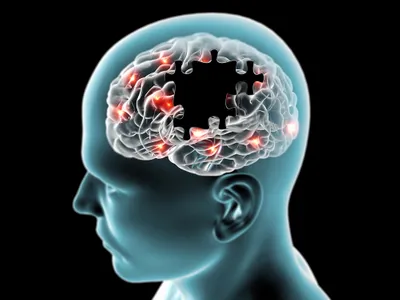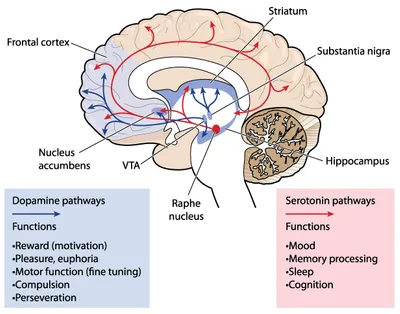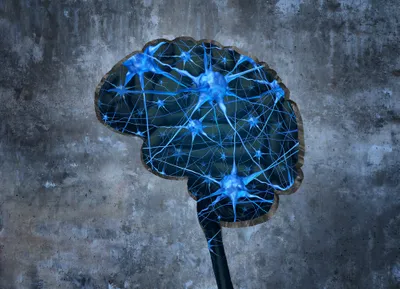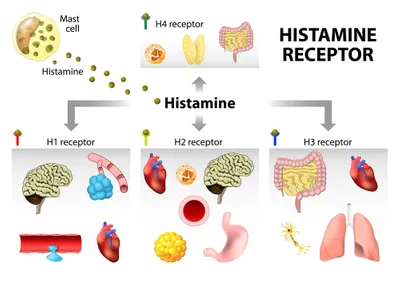Your brain is the control center for everything in your body – and there’s a fairly delicate balance of chemistry that must be in check for everything to function properly. Your brain uses chemical neurotransmitters to communicate from one cell to another, and an imbalance of these chemical signals can cause problems mentally and physically.
Each one of these chemicals is responsible for making you feel a certain way – from excitement, sadness and contentedness. They are subdivided into categories from amino acids, to gasotransmitters, to monoamines, but let’s take a look at how seven of these chemical transmitters (primarily in the latter category) affect brain and body function…
1. Dopamine
This is a neurotransmitter that is associated with pleasure and rewards, according to Psychology Today. It is an important element when it comes to regulating emotional responses, adds the source.
But dopamine has other functions such as regulating movement, and a lack of dopamine can actually lead to Parkinson’s Disease, a central nervous system disorder causing involuntary shaking of the hands and difficult walking.
2. Serotonin
This is the brain transmitter most often associated with depression, if levels are not adequate. Antidepressant medications called SSRIs are designed to target serotonin, making it more available in the brain. Although it’s manufactured in the brain, 90-percent of the serotonin supply is found in the digestive tract, according to WebMD.
Serotonin starts as tryptophan (that stuff from turkey that makes you feel sleepy). Aside from mood, serotonin is also related to your cardiovascular system and other essential bodily functions, as it is tied to almost all 40-million or so brain cells you have at any given time, explains the source.
3. Norepinephrine
This is a brain neurotransmitter as well as a stress hormone, according to EverydayHealth.com. It is released into your bloodstream “when the brain perceives that a stressful event has occurred,” notes the source.
When a stress response has been activated, it can affect your heart rate, blood sugar, and blood flow to muscles, adds EveryDayHealth. But this chemical also has also essential functions – it can boost your alertness and arousal level, as well as your ability to concentrate, adds the source. In fact, low levels are linked to ADHD.
4. D-serine
A post on the U.S. National Library of Medicine notes, “The mammalian brain contains unusually high levels of D-serine, a D-amino acid previously thought to be restricted to some bacteria and insects.” It is described as a “key excitatory neurotransmitter receptor”.
This may not mean a lot if you’re not a neuroscientist. Essentially, this amino acid plays a role in metabolism and boosts receptors in brain cells. It is also believed this neurotransmitter is related to memory, and could be effective in the treatment of a biochemical mental disorder called schizophrenia, according to Schizophrenia.com.
5. Endorphins
There are several forms of endorphins, but generally, they are released in response to stress and pain, according to MedicineNet.com. In particular, endorphins can actually reduce your perception of pain, making it a useful ally in some cases (such as finishing a marathon, for example).
The source notes that natural endorphins can give you what’s known as a “runner’s high”. The good news is that “activation of the opiate receptors by the body’s endorphins does not lead to addiction or dependence,” notes the source.
6. Glutamate and GABA
These two chemicals are “the brain’s most plentiful neurotransmitters,” according to the University of Utah. Apparently about half of brain synapses involve glutamate, while up to 40-percent use gamma-aminobutyric acid (GABA).
These transmitters work hand in hand to keep excitement levels of the brain in check, notes the university. GABA is “inhibitory” and glutamate is “excitatory,” it adds. Substance abuse can change the balance of these neurotransmitters – for example, alcohol decreases glutamate (and increases GABA), while tranquilizers increase GABA activity, notes the source.
7. Histamines
The next time you reach for an antihistamine for that sinus problem, consider this: histamines are the “bouncers at a club” that can help you get rid of unwanted allergens, explains WebMD. But even histamines can sometimes get a little out of control themselves.
Histamines boost blood flow to areas that are affected by an allergy, causing inflammation, notes the source. If this happens to be in your nose, there’s more mucus production, causing you to sniffle, sneeze, and cough. While histamines are a naturally-occurring neurotransmitter, some foods actually contain histamines, mostly fermented items and alcoholic beverages (red wine in particular), adds the source.










